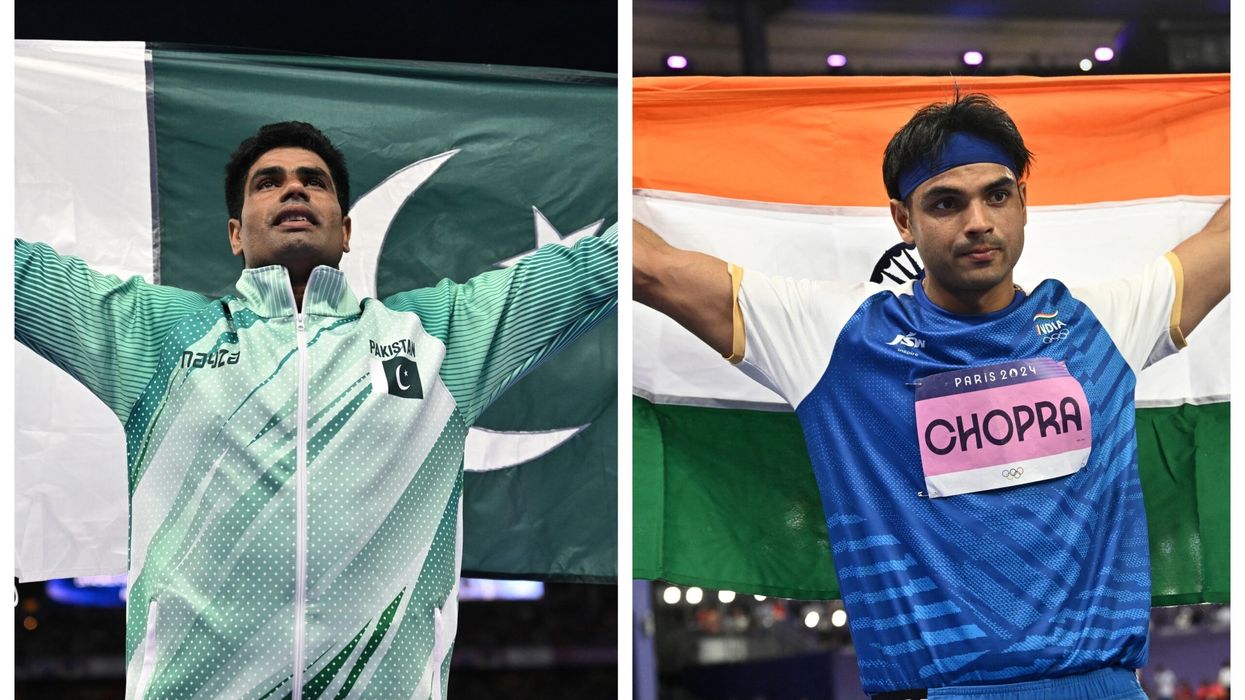PAKISTAN's Arshad Nadeem made history by winning the Olympic men's javelin title in Paris on Thursday, marking his country's first individual gold medal at a Summer Games.
Nadeem set an Olympic record with a throw of 92.97 meters, securing the gold medal. India's Neeraj Chopra, the defending champion, took silver with a distance of 89.45 meters, while Grenada's Anderson Peters earned bronze with a throw of 88.54 meters.
"When I threw the javelin, I felt it leaving my hand and sensed it could be an Olympic record," said Nadeem, 27.
Nadeem, who won the Commonwealth Games in 2022, finished fifth at the Tokyo Olympics, and secured a silver medal at the Budapest World Championships last year. He emphasised the importance of this result for Pakistan, noting the hard work he put in over the years.
"My training and hard work have paid off," he added.
Addressing the rivalry with Chopra, Nadeem acknowledged its significance. "The rivalry with Chopra is there, no doubt," he said. "People back home in Pakistan and India were eager to see us compete together."
He continued, "Rivalry is there in cricket and other sports, but it's a good thing for young people in both countries to watch our sport and follow us. It's a positive thing for both countries."
Chopra echoed this sentiment, stating that the competition between them could inspire more people in both countries to take up athletics, particularly javelin.
Nadeem also shared his ambitions for future competitions. "I was expecting to throw even further, and I am hoping to go even further," he said, after his Olympic record surpassed his previous best by more than two meters. "I will try harder to extend my personal best to over 95 meters."
Before Nadeem's victory, Pakistan had never won an individual gold medal at the Olympics. The country's previous three gold medals were all in field hockey, achieved in 1960, 1968, and 1984. Additionally, only two Pakistani athletes had won individual medals prior to Thursday—a wrestling bronze in 1960 and a boxing bronze in 1988. Since the 1992 Barcelona Games, Pakistan had not won any Olympic medals.
Chopra, though satisfied with his best throw, expressed disappointment with his overall performance. "I'm not that happy with my performance today, and my technique and runway were not that good," he said. "Only one throw was good; the rest I fouled. That second throw, I believed in myself, but in javelin, if your run-up is not so good, you can't go very far."
Chopra also revealed that he had not done much throwing in training due to a groin injury. "The last two, three years were not so good. I'm always injured. I really tried hard, but I have to do more work on my injury and technique. But I will work hard in the future. Today's competition was really great. Arshad threw really well. Congratulations to him and his country."
(With inputs from agencies)




